Our favourite UK Set Top Box manufacturer is celebrating their 25th birthday this year.
 25 years! Staggering how old the industry is now isn’t it?
25 years! Staggering how old the industry is now isn’t it?
Waaaaaay back in 1982 they started off selling modems and software. Their first product was a PSTN modem called the Nightingale and we can even remember Pace modems from back when 1200/75 baud modems appeared as an exotic advance from the 300 baud ones that were the standard.
For all of you young ones who weren’t around in those days, that’s 1.2/0.075 Kbps vs 0.3 Kbps. Scarily slow.
Following their modem and software successes, Pace launched their first satellite set-top box (SR640) in 1987 and like all design, it was a product of its time, with a fab HiTech feel about it.

From there, Pace really haven’t looked back. They’ve consistently carried out pioneering development, building up a large selection of industry firsts, including the first digital satellite receiver in the UK, the first PVR (personal video recorder) in Europe, the first low-cost digital terrestrial adapter (thereby creating the freeview market in the UK) and, more recently, the very first H.264 DVB-S2 high definition set-top box in the world.
Their latest and greatest product is a HD DVR, the HR20, which records using MPEG-4.

If you, like us, dear tech trivia fan don’t know the history behind the name of Pace, you’ll be excited to hear that the name Pace came from an innovative shipping company in Australia called the Pacific Australia Container Express.
The Next 25 years
Looking forward to the next 25 years, Neil Gaydon, CEO, give his views of where Pace will be innovating, “Soon we will see multiroom and home networking solutions coming through, that will allow you to watch anything you want from any screen in the house, including mobile TV. When you add the fact you will import your photos and internet entertainment to any screen, your music to any room in the home along with wireless technologies emerging, so removing the need for wires, we are at the early stages of a new TV revolution.”
Best of luck to Pace in the coming years, may they continue their success.
Pace Jubilee
 Early pre-UK-release signs weren’t promising, nor were they looking any better when the UK PS3 was selling for £100 under their release price, a couple of days beforehand.
Early pre-UK-release signs weren’t promising, nor were they looking any better when the UK PS3 was selling for £100 under their release price, a couple of days beforehand.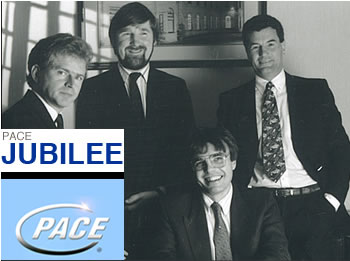 25 years! Staggering how old the industry is now isn’t it?
25 years! Staggering how old the industry is now isn’t it?

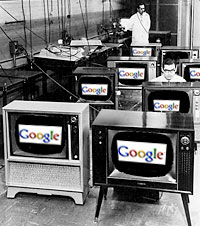 The company is set to unveil deals today with satellite TV service EchoStar Communications and Astound Cable in the US to broker commercials in a similar way to how it offers online advertising.
The company is set to unveil deals today with satellite TV service EchoStar Communications and Astound Cable in the US to broker commercials in a similar way to how it offers online advertising.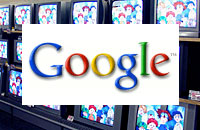 During the television pilot, Google will serve commercials to EchoStar’s Dish Network satellite channels, a US service which enjoys around 13.1 million subscribers. The adverts won’t look any different to regular ones, carrying no Google branding and appearing in the usual time slots.
During the television pilot, Google will serve commercials to EchoStar’s Dish Network satellite channels, a US service which enjoys around 13.1 million subscribers. The adverts won’t look any different to regular ones, carrying no Google branding and appearing in the usual time slots. The EU alleges that agreements between Apple and the record companies are guilty of breaking European Union rules that prohibit restrictive business practices. It’s far from the first time that the EU and other
The EU alleges that agreements between Apple and the record companies are guilty of breaking European Union rules that prohibit restrictive business practices. It’s far from the first time that the EU and other  “The statement of objections alleges that distribution agreements between Apple and major record companies contain territorial sales restrictions,” he added.
“The statement of objections alleges that distribution agreements between Apple and major record companies contain territorial sales restrictions,” he added. Apple and the record companies now have two months to defend themselves in writing or take part in an oral hearing which usually happens around a month after a written reply has been received.
Apple and the record companies now have two months to defend themselves in writing or take part in an oral hearing which usually happens around a month after a written reply has been received. Yesterday, record company giants EMI Group PLC announced that it planned to unveil “an exciting new digital offering” with Steve Jobs and the gang at Apple, leading pundits to conclude that The Beatles’ music catalogue is finally about to be made available through Apple’s iTunes online music store.
Yesterday, record company giants EMI Group PLC announced that it planned to unveil “an exciting new digital offering” with Steve Jobs and the gang at Apple, leading pundits to conclude that The Beatles’ music catalogue is finally about to be made available through Apple’s iTunes online music store. The Beatles have famously refused to sign up to iTunes and other online music services for years, and many expect the download charts to be instantly filled up with the Fab Four’s songs as soon as their catalogue becomes available.
The Beatles have famously refused to sign up to iTunes and other online music services for years, and many expect the download charts to be instantly filled up with the Fab Four’s songs as soon as their catalogue becomes available.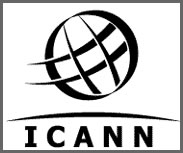 The idea behind the .xxx p0rn domain extension (or Top Level Domain TLD, in domain -ese) has been floating around for a
The idea behind the .xxx p0rn domain extension (or Top Level Domain TLD, in domain -ese) has been floating around for a 
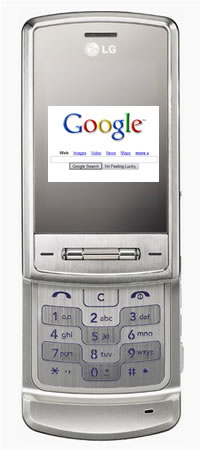 LG have committed to release at least ten new mobile phone and will jointly market them as LG-Google handsets.
LG have committed to release at least ten new mobile phone and will jointly market them as LG-Google handsets. WebEx is listed on the NASDAQ (WEBX) and is reported to be the leader in its field. They offer a ton of different products, all based around sharing information between a number of remote parties, with the majority of them featuring shared video.
WebEx is listed on the NASDAQ (WEBX) and is reported to be the leader in its field. They offer a ton of different products, all based around sharing information between a number of remote parties, with the majority of them featuring shared video. The quarterly report snappily titled, Communications Market: Digital Television Progress Report, covering the fourth quarter of 2006 (October-December), shows the figures are up from 39% in the same period the previous year, and also from 44.7% in the Q3 2006.
The quarterly report snappily titled, Communications Market: Digital Television Progress Report, covering the fourth quarter of 2006 (October-December), shows the figures are up from 39% in the same period the previous year, and also from 44.7% in the Q3 2006.